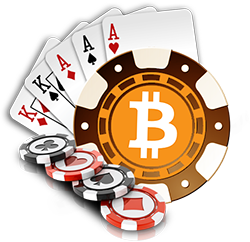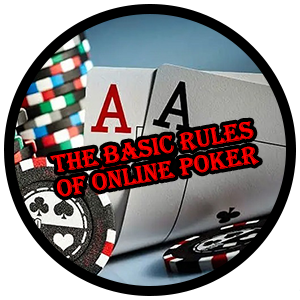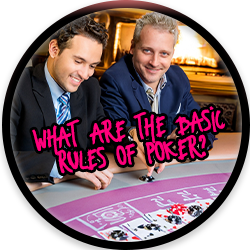How To Learn To Play Poker
How To Learn To Play Poker – Unlock the thrilling world of poker with our comprehensive guide on how to learn to play poker! Whether you're a complete beginner or looking to enhance your skills, we've got you covered. Discover the rules, strategies, and tactics that will turn you into a confident player at the poker table. From understanding hand rankings to mastering the art of bluffing, our step-by-step tutorials and expert tips will empower you to navigate the game with finesse. Join our poker community, practice your skills in free-play mode, and get ready to compete in exciting tournaments. Embrace the challenge and embark on an exciting poker journey today!

How To Learn To Play Poker – Are you ready to dive into the world of poker? Learn to play poker and unlock endless excitement and opportunities! Whether you're a complete novice or looking to refine your skills, our comprehensive guide has got you covered. Discover the fundamentals of the game, from understanding hand rankings to mastering essential strategies. With our step-by-step tutorials and expert tips, you'll gain the confidence to take on the poker table like a pro. Join our community of poker enthusiasts, practice in free play mode, and compete in thrilling tournaments. Embrace the challenge, unleash your inner poker player, and embark on an incredible journey of skill and strategy!
How To Learn To Play Poker
How To Learn To Play Poker
How To Learn To Play Poker
How To Learn To Play Poker – Are you ready to join the thrilling world of poker? Whether you're a complete beginner or looking to enhance your skills, learning to play poker online opens up a world of excitement, strategy, and competitive gameplay. With the convenience and accessibility of online platforms, you can embark on your poker journey from the comfort of your own home.
In this comprehensive How To Learn To Play Poker guide, we will take you through the steps of learning to play poker online. From understanding the basic rules to mastering advanced strategies, we will equip you with the knowledge and skills needed to excel in this popular card game.
Why Learn to Play Poker Online?

Learning to play poker online offers several advantages over traditional in-person games. Here are a few reasons why online poker is a great choice for both beginners and experienced players:
- Accessibility: Online poker platforms are available 24/7, allowing you to play whenever and wherever you want. Whether you prefer desktop or mobile play, you can enjoy poker games at your convenience.
- Variety of Games: Online poker sites offer a wide range of game variations, including Texas Hold'em, Omaha, Stud, and more. This allows you to explore different formats and find the ones that suit your preferences and skill level.
- Practice Opportunities: Many online poker platforms offer free play or low-stakes games, providing a risk-free environment for beginners to practice their skills. This is a great way to gain experience and build confidence before playing for higher stakes.
- Player Resources: Online poker sites often provide resources such as tutorials, strategy guides, and forums where players can learn from experts and discuss strategies with fellow enthusiasts. These resources can help you improve your game and stay updated with the latest trends in the poker world.
- Bonuses and Promotions: Online poker platforms frequently offer enticing bonuses and promotions, such as welcome bonuses, deposit matches, and loyalty rewards. These incentives can enhance your playing experience and provide additional value.
Getting Started: Basic Poker Rules

Before diving into the world of online poker, it's crucial to understand the basic rules of the game. Poker is a card game that involves a combination of skill, strategy, and luck. The goal is to win the pot, which consists of bets made by players during the course of the hand.
The most popular form of poker is Texas Hold'em, so let's briefly outline its basic rules:
- Hand Rankings: Familiarize yourself with the different poker hand rankings, from the highest (Royal Flush) to the lowest (High Card). Knowing the hierarchy of hands is essential for determining the winner of each hand.
- Betting Rounds: Each hand of Texas Hold'em consists of multiple betting rounds, where players can choose to bet, check, call, raise, or fold. The betting rounds are preflop, flop, turn, and river.
- Community Cards: Texas Hold'em uses community cards, which are shared by all players and placed in the middle of the table. These cards are dealt in stages (flop, turn, and river) and can be used in combination with each player's hole cards to make the best possible hand.
- Showdown: After the final betting round, if more than one player remains, a showdown occurs. Players reveal their hole cards, and the player with the best hand wins the pot.
Learning Resources and Strategies
To enhance your poker skills, it's essential to immerse yourself in learning resources and strategies. Here are some key tips to keep in mind:

- Start with the Basics: Master the fundamental concepts of poker, including hand rankings, betting structures, and positional play. Understanding these core principles will form the foundation for your poker journey.
- Study Hand Selection: Learn about starting hand ranges and the importance of selecting the right hands to play in different positions. Proper hand selection is crucial for long-term success in poker.
- Practice Bankroll Management: Properly managing your bankroll is essential for sustaining your poker journey. Set aside a dedicated bankroll for poker and adhere to proper bankroll management principles to minimize your risk of ruin.
- Learn Different Strategies: Explore various poker strategies, such as tight-aggressive, loose-aggressive, and balanced play. Understanding different strategies will allow you to adapt to different opponents and game conditions.
- Analyze Your Gameplay: Regularly review your hands and sessions to identify areas for improvement. Utilize software tools and tracking programs to analyze your gameplay and identify leaks in your strategy.
- Play and Learn: Experience is one of the most effective ways to improve your poker skills. Participate in online poker games, both cash games and tournaments, to apply your knowledge and gain practical experience.
Learning to play poker online is an exciting and rewarding journey. By familiarizing yourself with the basic rules, studying strategies, and utilizing the available resources, you can develop your skills and increase your chances of success. Remember that poker is a game of skill and patience, so continuous learning and practice are key. Embrace the challenges, enjoy the thrill of the game, and embark on your poker adventure today! — How To Learn To Play Poker?
How To Learn To Play Poker
How To Learn To Play Poker & What Are The Basic Rules Of Poker?
How To Learn To Play Poker – Poker is a popular card game that has been enjoyed by players around the world for centuries. Whether you're playing at a casino, a friendly home game, or online, understanding the basic rules of poker is essential. In this informative How To Learn To Play Poker & What Are The Basic Rules Of Poker post, we will walk you through the fundamental rules of poker, giving you a solid foundation to start playing and enjoying this exciting game.

Poker Hand Rankings: In poker, the objective is to make the best possible hand using a combination of cards. The hand rankings from highest to lowest are as follows: Royal Flush, Straight Flush, Four of a Kind, Full House, Flush, Straight, Three of a Kind, Two Pair, One Pair, and High Card.
Betting Rounds: Poker is a game of betting, and each hand typically consists of several betting rounds. The two most common variants of poker are “Texas Hold'em” and “Omaha,” which both feature multiple betting rounds. Players take turns placing bets or making strategic decisions based on the strength of their hand.
Dealing the Cards: At the beginning of each hand, players are dealt a certain number of cards depending on the variant being played. In Texas Hold'em, each player receives two private cards, followed by a round of betting. Then, the dealer places five community cards face-up on the table, which all players can use to form their final hand.
The Flop, Turn, and River: In Texas Hold'em, the community cards are dealt in three stages: the flop, turn, and river. The flop consists of three community cards placed face-up on the table after the first round of betting. The turn is the fourth community card, followed by another round of betting. Finally, the river is the fifth and final community card, followed by the last round of betting.
Betting Options: During each betting round, players have several options to choose from. They can either check (if no one has bet before them), bet (place a wager), call (match the previous bet), raise (increase the bet), or fold (surrender their hand and exit the current round). The betting options available depend on the actions of the players before them.
Showdown: Once all the betting rounds are completed, the remaining players reveal their hands in a showdown. The player with the highest-ranking hand wins the pot, which consists of all the bets made during the hand. If two or more players have the same hand ranking, the pot is split evenly among them.
Blinds and Antes: In some poker variants, such as Texas Hold'em, there are forced bets called blinds. The player to the left of the dealer posts the small blind, and the player to their left posts the big blind. These bets ensure that there is always something in the pot to play for. In other games, like tournaments, antes are small forced bets placed by all players before the hand begins.
Betting Limits: Poker can be played with different betting structures, including no-limit, pot-limit, and fixed-limit. In no-limit poker, players can bet any amount of chips they have in front of them at any time. In pot-limit poker, the maximum bet is limited to the size of the current pot. In fixed-limit poker, there are specific betting limits for each round of betting.
Variants of Poker: Poker has numerous variations, each with its own unique rules and gameplay. Some popular variants include Texas Hold'em, Omaha, Seven-Card Stud, Five-Card Draw, and Razz. Each variant has its own rules regarding the number of cards dealt, hand rankings, and betting structure.
Etiquette and Table Manners: Poker is a game that values proper etiquette and sportsmanship. It is important to be respectful to other players, follow the rules, and avoid behaviours that may give you an unfair advantage. It is also customary to tip the dealer in live casino games as a sign of appreciation.
Remember, mastering poker takes time and practice. As you become familiar with the basic rules, consider studying strategy, hand-reading, and developing your own playing style. With experience, you can refine your skills and become a formidable player at the poker table. How To Learn To Play Poker; Poker is a game of skill, strategy, and excitement. Whether you're playing for fun or competing in tournaments, understanding the basic rules of poker is essential. So gather your chips, sharpen your card skills, and get ready for the thrilling world of poker! — How To Learn To Play Poker?
How To Learn To Play Poker
How To Learn To Play Poker & What Are The Different Variations Of Poker?
How To Learn To Play Poker – Poker is a diverse and exciting card game that has evolved over the years, resulting in a wide range of variations. Each variation of poker comes with its own unique rules, strategies, and playing styles. In this How To Learn To Play Poker & What Are The Different Variations Of Poker post, we will explore some of the most popular variations of poker and provide an overview of their key features.

Texas Hold'em: Texas Hold'em is the most widely recognized and played variation of poker. It is featured in major tournaments like the World Series of Poker (WSOP) and is a favourite among both professional and recreational players. In Texas Hold'em, players are dealt two private cards and must create the best hand possible using those cards in combination with five community cards placed face-up on the table.
Omaha: Omaha is another popular variation of poker that is similar to Texas Hold'em. However, there are some notable differences. In Omaha, players receive four private cards instead of two, and they must use exactly two of their private cards and three of the community cards to form their hands. This creates more possibilities for strong hands and strategic gameplay.
Seven-Card Stud: Seven-Card Stud is a classic form of poker that was widely played before the rise of Texas Hold'em. In this variation, players are dealt a combination of face-up and face-down cards over the course of multiple betting rounds. Each player aims to create the best five-card hand from the seven cards they receive.
Five-Card Draw: Five-Card Draw is one of the simplest forms of poker and is often one of the first variations beginners learn to play. In this game, each player is dealt five private cards, and they have the opportunity to discard and replace some or all of their cards to improve their hand. The objective is to create the best five-card hand and win the pot.
Caribbean Stud Poker: Caribbean Stud Poker is a casino variation of poker that is played against the dealer, rather than other players. Each player is dealt five private cards, and the dealer also receives five cards with one card face-up. The players must decide whether to fold or raise based on the strength of their hand. The dealer must have at least an Ace-King combination to qualify, and the player with the higher-ranking hand wins.
Razz: Razz is a lowball poker variation where the objective is to create the lowest possible hand. In this game, the traditional hand rankings are reversed, and the best possible hand is Ace-2-3-4-5. The game is played as a seven-card stud, and the player with the lowest hand at the showdown wins the pot.
Omaha Hi-Lo: Omaha Hi-Lo, also known as Omaha Eight or Better, is a split-pot variation of Omaha where the pot is divided between the best high hand and the best low hand. The low hand is determined by the lowest five-card combination that includes cards of value eight or lower.
Badugi: Badugi is a unique and less common form of poker that originated in Asia. In Badugi, players are dealt four private cards, and the objective is to create the lowest possible hand with cards of different suits and values. Straights and flushes do not count against the hand, and the best hand in Badugi is A-2-3-4 with different suits.
These are just a few examples of the many variations of poker that exist. Each variation brings its own set of rules, strategies, and challenges, making poker a game of skill, strategy, and adaptability. Whether you're interested in the intense action of Texas Hold'em, the strategic decision-making of Omaha, or the simplicity of Five-Card Draw, there is a poker variation suited to your preferences and skill level. Exploring and mastering different variations can enhance your overall poker knowledge and provide new and exciting experiences at the poker table. — How To Learn To Play Poker?
How To Learn To Play Poker
How To Learn To Play Poker & What Are The Different Hands In Poker?
How To Learn To Play Poker – Poker is a popular card game that involves strategy, skill, and a bit of luck. To be successful in poker, it's essential to understand the different hands and their rankings. In this informative How To Learn To Play Poker & What Are The Different Hands In Poker post, we will explore the various hands in poker and their significance in the game. — How To Learn To Play Poker?
High Card: When no players have a winning hand, the highest card in a player's hand determines the winner. For example, if two players have no pairs, straights, or other combinations, the player with the highest card wins.

One Pair: A pair consists of two cards of the same rank, accompanied by three unrelated cards. For example, two Kings and three unrelated cards would be a one pair hand.
Two Pair: Two pair consists of two sets of pairs, each with cards of the same rank, and one unrelated card. For example, having two Queens, two Jacks, and one unrelated card would form a two pair hand.
Three of a Kind: Three of a kind is a hand with three cards of the same rank and two unrelated cards. For example, having three Aces and two unrelated cards would be a three of a kind hand.
Straight: A straight is a hand with five consecutive cards of any suit. For example, having 2, 3, 4, 5, and 6 of any suit would form a straight hand.
Flush: A flush consists of any five cards of the same suit, not in sequential order. For example, having five hearts of any rank would create a flush hand.
Full House: A full house is a hand that consists of three cards of the same rank and two cards of another rank. For example, having three Queens and two Jacks would form a full house.
Four of a Kind: Four of a kind is a hand with four cards of the same rank and one unrelated card. For example, having four Kings and one unrelated card would be a four of a kind hand.
Straight Flush: A straight flush is a combination of a straight and a flush. It consists of five consecutive cards of the same suit. For example, having 4, 5, 6, 7, and 8 of hearts would form a straight flush hand.
Royal Flush: The royal flush is the highest-ranking hand in poker. It consists of the Ace, King, Queen, Jack, and Ten of the same suit. For example, having A, K, Q, J, and 10 of hearts would form a royal flush hand.
It's important to note that in most poker games, including Texas Hold'em and Omaha, players use a combination of their hole cards (cards dealt to them face-down) and community cards (cards dealt face-up on the table) to form their final hand. The objective is to create the best possible hand using any combination of these cards.
Understanding the different hands in poker is crucial for determining the strength of your hand and making strategic decisions throughout the game. It allows players to assess their chances of winning, bet accordingly, and anticipate the moves of their opponents. Knowing the rankings of the hands will help you make more informed decisions and improve your overall performance at the poker table.
It's important to practice and familiarize yourself with the various hands through experience and gameplay. As you become more proficient, you can refine your strategies and make more calculated moves to increase your chances of success in poker.
How To Learn To Play Poker
How To Learn To Play Poker & How To Play Poker Online On Mobile?
How To Learn To Play Poker – Learning to play poker is an exciting journey that can lead to thrilling games and potentially lucrative wins. In this How To Learn To Play Poker & How To Play Poker Online On Mobile post, we will guide you through the process of learning poker and highlight how to play poker online on mobile devices.
Poker is a popular card game that combines skill, strategy, and a bit of luck. It has various variations, including Texas Hold'em, Omaha, Seven-Card Stud, and more. To start learning poker, it's important to understand the basic rules and hand rankings. The objective of poker is to create the best hand possible or to make other players fold by betting strategically. Each player receives a certain number of cards, and they make their moves based on the strength of their hand and the actions of other players.
To begin, familiarize yourself with the hand rankings. The highest-ranking hand in most poker variations is the Royal Flush, which consists of the Ace, King, Queen, Jack, and Ten of the same suit. The rankings then proceed to Straight Flush, Four of a Kind, Full House, Flush, Straight, Three of a Kind, Two Pair, One Pair, and High Card.
Once you grasp the basics, it's time to practice and improve your poker skills. Many online platforms offer free play or low-stakes games where you can play against other players and hone your strategy. Take advantage of these opportunities to gain experience and learn from your mistakes.
Playing poker online on mobile devices has become increasingly popular, allowing players to enjoy the game anytime and anywhere. To get started, find a reputable online poker platform that offers a mobile app or a mobile-optimized website. Make sure the platform is licensed and regulated to ensure fair gameplay and the security of your personal information.
Download the poker app onto your mobile device or access the mobile site through your device's browser. Create an account and follow the instructions to complete the registration process. Once you're logged in, you can explore the different poker games and tables available.
Playing poker on mobile devices offers the convenience of on-the-go gaming. You can join cash games, sit-and-go tournaments, or even multi-table tournaments from the palm of your hand. The intuitive interfaces and touch controls make it easy to navigate and place your bets. Some poker apps also offer features such as player chat, hand histories, and customizable settings to enhance your playing experience.
As you progress in your poker journey, consider studying poker strategy. There are numerous resources available, including books, articles, videos, and forums where you can learn from experienced players. Understanding concepts such as hand selection, position, bet sizing, and reading opponents' tells can greatly improve your game.
It's also essential to manage your bankroll effectively when playing poker. Set a budget for your poker sessions and stick to it. Avoid chasing losses and always play within your means. Bankroll management is crucial for long-term success in poker. — How To Learn To Play Poker?
In conclusion, learning to play poker is an exciting endeavour that requires dedication, practice, and continuous learning. How To Learn To Play Poker, Understand the basic rules and hand rankings, practice on free or low-stakes platforms, and gradually develop your strategy. When playing poker online on mobile devices, find a reputable platform, download the app or access the mobile site, and enjoy the convenience of playing anytime, anywhere.
Remember to play responsibly, manage your bankroll, and embrace the ever-evolving nature of the game. Poker offers a captivating blend of skill, strategy, and anticipation, making it a favourite among card game enthusiasts. So, shuffle up and deal – the poker table awaits!
How To Learn To Play Poker
How To Learn To Play Poker & What Is The History Of Poker?
How To Learn To Play Poker – The history of poker is fascinating, with roots that can be traced back centuries. Poker has evolved from a simple card game played by a few to a global phenomenon enjoyed by millions. In this informative How To Learn To Play Poker & What Is The History Of Poker post, we will explore the history of poker and its transition to online poker, revolutionizing the way people play and enjoy the game.

The exact origins of poker are somewhat unclear, as there are various theories and claims about its beginnings. Some believe that poker originated in China in the 10th century, while others attribute its origins to Persian card games played in the 16th century. However, the most widely accepted theory is that poker originated in the United States during the early 19th century. — How To Learn To Play Poker?
The game of poker grew in popularity during the 19th century, particularly in the United States. It was played on riverboats and in saloons, becoming a favorite pastime among cowboys, miners, and gamblers. The rules and variations of the game varied widely, with each region and group of players having their own set of rules.
In the mid-20th century, poker began to gain more widespread recognition and popularity. The World Series of Poker (WSOP) was established in 1970, becoming the most prestigious poker tournament in the world. The WSOP helped elevate poker to new heights, attracting skilled players from around the globe and turning them into household names.
The introduction of online poker in the late 1990s revolutionized the game and propelled its popularity to unprecedented levels. The first online poker site, Planet Poker, was launched in 1998, offering players the ability to play poker online for real money. This innovation allowed players to enjoy the game from the comfort of their own homes, anytime they wanted, without the need for a physical casino or gathering of players.
Online poker quickly gained traction, with numerous online poker sites entering the market. The ability to play against opponents from all over the world and participate in a wide range of tournaments and cash games attracted a massive following. Online poker also introduced new variants of the game and innovative features, such as multi-table tournaments and player statistics tracking.
The popularity of online poker surged in the early 2000s, fueled by the “poker boom” following Chris Moneymaker's historic win at the 2003 WSOP Main Event. Moneymaker, an amateur player who qualified for the tournament through an online satellite, won the $2.5 million first-place prize, capturing the imagination of aspiring poker players worldwide. This event sparked a surge in online poker players, with millions flocking to online poker sites to try their hand at the game.
However, the online poker industry faced challenges in the following years, including regulatory issues and the infamous “Black Friday” in 2011 when several prominent online poker sites were shut down by the US government. Despite these setbacks, online poker persevered and adapted, with many sites shifting their focus to international markets where online poker remained legal and regulated. — How To Learn To Play Poker?
Today, online poker continues to thrive, with a wide range of online poker sites catering to players of all skill levels and preferences. The game is available on various platforms, including desktop computers, laptops, and mobile devices, allowing players to enjoy poker wherever they are.
In conclusion, the history of poker spans centuries, with the game evolving from its humble beginnings to become a global phenomenon. From its origins in the United States to the advent of online poker, the game has undergone remarkable transformations. Online poker has made poker more accessible and convenient, enabling players from all walks of life to participate in the thrilling world of poker. How To Learn To Play Poker, As technology continues to advance, the future of online poker looks bright, ensuring that the game will continue to captivate and entertain players for generations to come!
How To Learn To Play Poker
Our Final Words & Verdict On How To Learn To Play Poker
How To Learn To Play Poker – Poker is a timeless card game that has captivated players for centuries. With the advent of online casinos, poker has become more accessible than ever before. In this informative How To Learn To Play Poker post, we will provide our final thoughts on poker and online poker, highlighting the key aspects and considerations for players.
Poker is a game of skill, strategy, and psychological prowess. It requires players to make calculated decisions based on the strength of their cards, their opponent's actions, and their understanding of the game's dynamics. Whether you play poker casually with friends or competitively in tournaments, it offers an exciting and intellectually stimulating experience.
Online poker has revolutionized the way players engage with the game. It allows you to play anytime, anywhere, without the need for physical cards or a designated poker table. With online poker, you can join virtual tables, compete against players from around the world, and even participate in high-stakes tournaments.
One of the advantages of online poker is the wide variety of game variations available. From Texas Hold'em and Omaha to Seven-Card Stud and more, you can choose the variant that suits your preferences and skill level. Online poker platforms also offer different betting structures, such as cash games, sit-and-go tournaments, and multi-table tournaments, providing plenty of options for players to enjoy.
When playing online poker, it's important to choose a reputable and licensed online poker room. Look for platforms that use secure encryption technology to protect your personal and financial information. Additionally, ensure that the poker site has a fair and transparent random number generator (RNG) to ensure the integrity of the game.
As with any form of gambling, it's crucial to set a budget and play responsibly. Poker can be an exhilarating and challenging game, but it's important to manage your bankroll and not chase losses. Develop a strategy, study the game, and continually improve your skills to become a successful poker player. — How To Learn To Play Poker?
Online poker also offers the advantage of learning resources and tools. Many platforms provide tutorials, strategy guides, and even free play options to help beginners understand the game and develop their skills. Take advantage of these resources to enhance your knowledge and improve your gameplay.
In conclusion, poker is a game that offers endless possibilities for entertainment and skill development. Whether you prefer playing in person or online, the game of poker provides excitement, strategy, and the opportunity to test your decision-making abilities. Online poker has made the game more accessible than ever, allowing players to enjoy a wide range of variations and compete against opponents from around the world.
Remember to always play responsibly, understand the rules and strategies of the game, and choose a reputable online poker room. With dedication, practice, and a solid understanding of the game, you can enhance your poker skills and potentially achieve success in both casual and competitive settings. How To Learn To Play Poker; So, whether you're a seasoned player or a beginner taking your first steps into the world of poker, embrace the challenge, enjoy the experience, and may the cards be in your favour.
How To Learn To Play Poker FAQ
What is poker?
Poker is a popular card game where players bet on the strength of their hand. The objective is to have the best hand or to convince other players to fold.
How To Learn To Play Poker?
In poker, each player is dealt a hand of cards, and they take turns betting, raising, or folding based on the strength of their hand and their strategy.
What are the different types of poker games?
There are various types of poker games, including Texas Hold'em, Omaha, Seven-Card Stud, and more. Each game has its own rules and variations.
How do I learn the rules of poker?
You can learn the rules of poker by studying books, watching tutorial videos, or joining online poker communities where you can find beginner guides and resources. Read our full How To Learn To Play Poker post!
What are the basic hand rankings in poker?
The basic hand rankings in poker, from highest to lowest, are Royal Flush, Straight Flush, Four of a Kind, Full House, Flush, Straight, Three of a Kind, Two Pair, One Pair, and High Card.
What strategies should I consider in poker?
Poker involves a combination of skill and strategy. It's important to consider factors like position, reading your opponents, managing your bankroll, and understanding when to bluff or fold.
Can I practice playing poker for free?
Yes, many online poker sites offer free play or “play money” games where you can practice your skills without risking real money. This is a great way to learn the game and improve your strategy.
Are there poker tournaments I can participate in?
Yes, both online and land-based casinos offer poker tournaments. These tournaments allow you to compete against other players for a chance to win cash prizes and gain experience.
What are the etiquettes and rules of conduct in poker?
Poker has its own set of etiquette and rules of conduct. It's important to be respectful to other players, avoid collusion, and follow the specific rules of the game you are playing.
How can I improve my poker skills?
Improving your poker skills takes time and practice. Study strategy guides, analyze your gameplay, watch professional players, and participate in low-stakes games to refine your skills and gain experience.



























